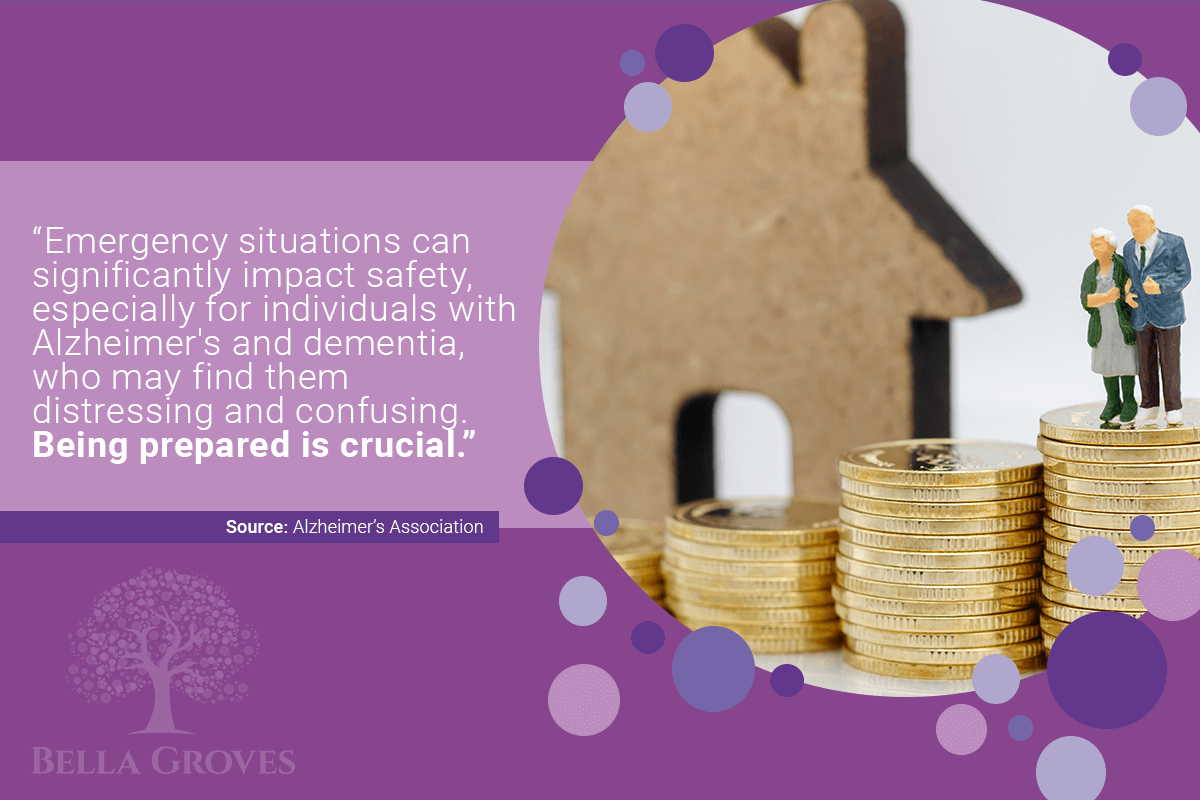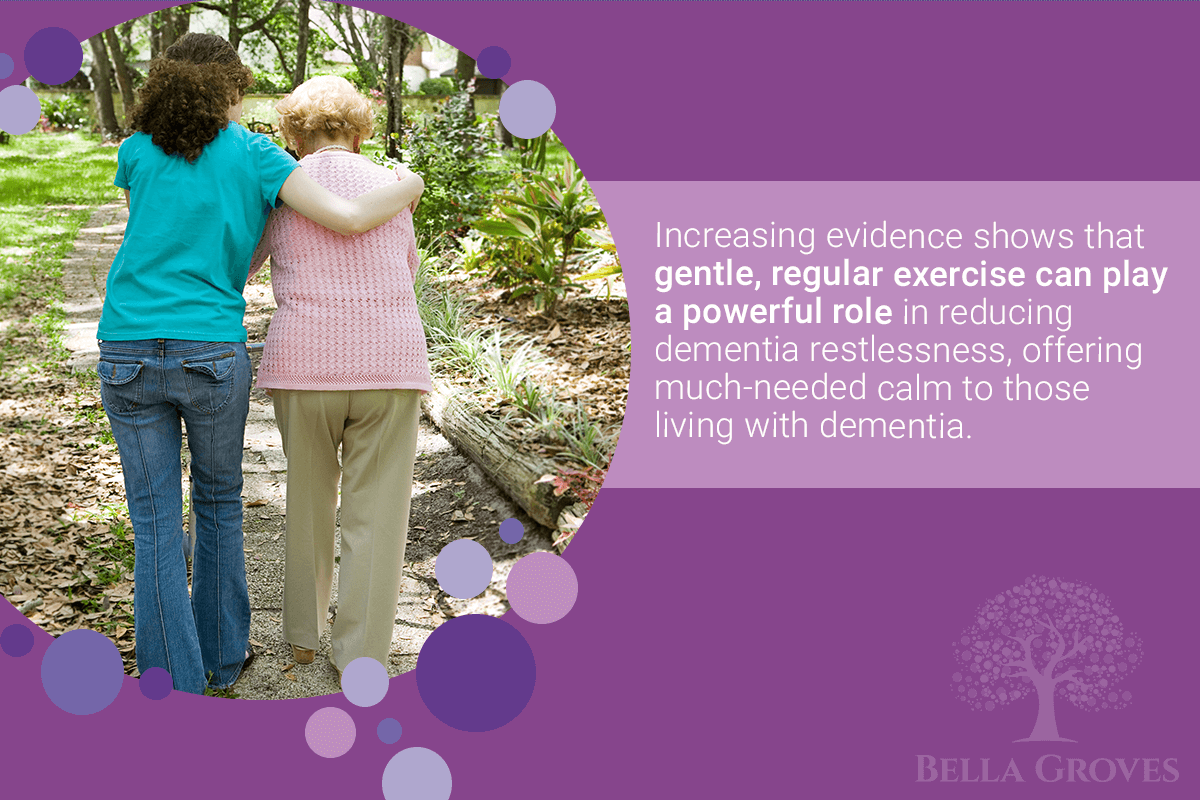
Dementia Care Planning: How to Prepare for Emergencies
Emergencies are a part of life, but when you’re caring for a person living with dementia, even minor surprises can feel overwhelming. The unpredictable nature of dementia means that being prepared isn’t just helpful; it’s essential. Whether you’re dealing with wandering, medical incidents, or unexpected behavioral changes, having a plan in place can ease stress and protect everyone involved.
At Bella Groves, we’re committed to helping families like yours face the challenges of dementia with courage, compassion, and hope. Our memory care team in San Antonio is guiding you through the process of dementia care planning for emergencies, providing practical steps and support along the way.
Understanding Dementia-Related Emergencies
Common Triggers and Scenarios
Emergencies in dementia care can arise from a variety of scenarios, including:
- Wandering and getting lost: A common behavior in later stages of dementia, which can quickly escalate into a dangerous situation.
- Medical crises: Health conditions like infections, falls, or sudden changes in behavior may require immediate attention.
- Aggression or severe anxiety: A person living with dementia may become agitated or emotionally distressed, leading to high-stress situations.
Recognizing Early Warning Signs
Identifying warning signs early can make a significant difference in preventing or reducing the impact of emergencies. Examples include restlessness, confusion about locations, reluctance to eat, or noticeable changes in physical mobility or communication. Staying attuned to these signals allows care partners to act before situations escalate.
Preparing Your Home Environment
Safety Modifications to Prevent Accidents
Creating a safe home environment significantly reduces the likelihood of emergencies. Consider:
- Installing locks or alarms on doors and windows to prevent wandering
- Removing tripping hazards like loose rugs or extension cords
- Adding grab bars in bathrooms for better stability
Creating a Calm and Secure Space
A secure and comforting environment can prevent or de-escalate situations of distress. Use soft lighting, soothing colors, and keep noise levels low, especially if your family member becomes easily agitated.
Creating a Dementia Care Emergency Plan
When you’re dementia care planning for emergencies, it’s wise to collect all necessary information in one place, like a folder that you can grab at a moment’s notice. This folder should contain documents outlining emergency contacts, current health conditions, known allergies, medication lists and dosage information, insurance information, and legal documents.
Essential Contacts and Services
Having a clear list of emergency contacts can help you reach the right person at the right time without having to search for their information.
- Family and friends: Identify a core group of people who can provide support or step in during emergencies.
- Healthcare professionals: Ensure easy access to your family member’s primary care physician, neurologist, or other specialists.
- Emergency services: Familiarize yourself with local services that offer specialized support for individuals with dementia, such as search-and-rescue programs for those who wander.
Medical History and Medication List
A well-organized list of medical information can expedite treatment during emergencies. It should include:
- Current medications and dosing schedules
- Known allergies
- Past medical conditions and surgeries
- Emergency medical preferences
Financial Information and Legal Documentation
Ensure legal and healthcare documents are up to date, including:
- Power of attorney: Empowers you or another trusted person to make financial and legal decisions on your family member’s behalf.
- Healthcare proxy or advance directive: Clarifies your relative’s wishes regarding medical care.
Emergencies can come with unexpected costs. It’s helpful to have:
- A dedicated savings account for healthcare or home modifications
- Access to funds that family members can use immediately, such as prepaid cards or authorized accounts
Self-Care for Care Partners During Emergencies
Managing Stress and Seeking Support
Emergencies can be physically and emotionally draining for care partners. To navigate stress, start by taking a moment to breathe and ground yourself before reacting. Whenever possible, delegate tasks by asking family members or friends to help. Additionally, consider seeking professional assistance from support services or local organizations to ease the load.
Prioritizing Your Well-Being
Remember, you can’t pour from an empty cup. Schedule rest, eat nutritiously, and don’t feel guilty about asking for help. Caring for yourself allows you to better care for your family member.
Community Resources and Support
Local Organizations and Services
Organizations like Bella Groves provide tailored resources to support families navigating dementia care. These resources often include search-and-rescue programs designed for individuals who wander, local caregiver support groups, training workshops to help families better understand and manage care, as well as respite services that offer temporary care to give care partners a much-needed break.
Online Support Groups and Forums
When local resources aren’t an option, online communities can provide additional support. Groups on platforms like Facebook or websites like the Alzheimer’s Association forums connect care partners who share advice, encouragement, and empathy.
Proactive Planning Brings Peace of Mind
Preparing for a dementia care emergency may feel overwhelming, but it’s a vital step in creating stability and security for your whole family. At Bella Groves, we believe that proactive planning empowers families to approach caregiving challenges with confidence—and most importantly, it ensures your family member receives the care and dignity they deserve.
If you’d like personalized guidance or need assistance developing an emergency plan, we’re here to help. Contact our memory care team in San Antonio today to learn how we can support you through every step of your care partner journey. Because at the end of the day, love truly is greater than dementia.


